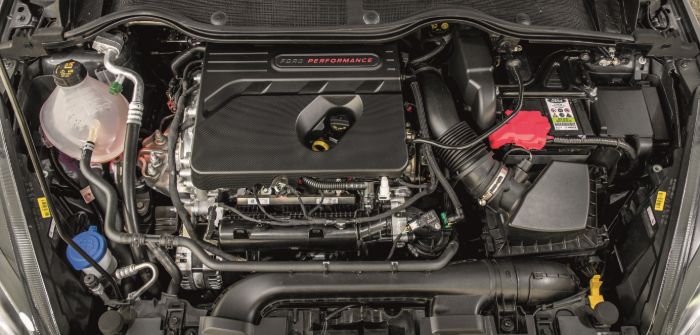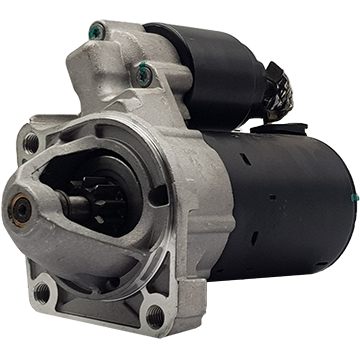Why Regular Maintenance of Your Ford Fiesta Engine Is Essential
Why Regular Maintenance of Your Ford Fiesta Engine Is Essential
Blog Article
The Future of Engines: Innovations Driving Lasting Power Solutions
As the automobile sector navigates the necessary change towards sustainability, the future of engines is increasingly defined by groundbreaking innovations. Electric engine improvements, alongside appealing growths in hydrogen fuel cells and biofuels, are improving the landscape of power solutions. The emergence of hybrid systems further complicates this advancement, providing both chances and difficulties to decrease exhausts successfully. Coupled with the combination of expert system in engine layout, these technological strides increase vital questions concerning their lasting viability and influence on standard paradigms. What might this imply for the sector and customers alike?
Electric Engine Dope
The evolution of electrical engine developments signifies a crucial change in the aerospace and vehicle markets, driven by the immediate requirement for sustainable options to nonrenewable fuel sources. This transition is characterized by substantial innovations in battery modern technology, power electronics, and electrical motor style, which collectively boost the effectiveness and efficiency of electric engines.
Recent developments have resulted in the creation of lighter, more energy-dense batteries, such as lithium-silicon and solid-state batteries, which promise longer arrays and much shorter billing times. In addition, renovations in electric motor performance, such as the usage of long-term magnets and advanced cooling down systems, allow electric engines to run efficiently under varying conditions. These improvements not only improve lorry efficiency however also add to a decrease in overall energy usage.
Moreover, the combination of sophisticated software formulas has maximized power administration in electrical lorries, permitting regenerative braking and anticipating charging approaches. As makers increasingly embrace electrical propulsion, the automobile and aerospace fields are experiencing a standard shift towards greener technologies. This evolution not just meets governing demands however also straightens with customer choices for eco-friendly transportation services, solidifying electrical engines as a keystone of future sustainable wheelchair.
Developments in Biofuels
As the aerospace and automobile sectors significantly prioritize sustainable power resources, developments in biofuels arise as a complementary remedy to electric engines. Biofuels, originated from organic products such as crops, waste, and algae, offer a cutting-edge method for lowering greenhouse gas exhausts and dependence on fossil gas.
Recent research study has actually focused on boosting the performance and sustainability of biofuel production. Second-generation biofuels use non-food feedstocks, decreasing competition with food supply and minimizing ecological influence. Innovations in synthetic biology have made it possible for the engineering of microbes to create biofuels more successfully, leading to greater yields and lower manufacturing prices.
Additionally, the development of drop-in biofuels enables for seamless combination right into existing framework, making it possible for a smoother shift for sectors commonly depending on nonrenewable fuel sources. ford fiesta engine. These gas can be utilized in existing engines without alterations, promoting their adoption across numerous sectors
Investments in biofuel technology, along with supportive policies, are necessary to drive development and scalability. As the international community seeks to deal with environment modification, biofuels supply a practical, immediate remedy that aligns with the overarching objective of sustainability in transport and air travel.
Hydrogen Gas Cell Technology
A growing number of scientists and companies are discovering hydrogen gas cell modern technology as a viable option to conventional source of power in transportation and energy systems. This innovation converts chemical power from hydrogen right into power via an electrochemical reaction, with water as the only byproduct, making it an eco-friendly option.
The core of hydrogen gas cells is the gas cell stack, where hydrogen particles are split right into protons and electrons. The circulation of electrons produces electrical power, while protons move via a membrane layer to combine with oxygen from the air, forming water. This procedure results in high efficiency and reduced discharges, positioning hydrogen fuel cells as a critical gamer in the transition to sustainable power.
Significant innovations have actually been made in enhancing the longevity and efficiency reference of fuel cells, along with decreasing costs via cutting-edge production methods. Additionally, the development of hydrogen manufacturing methods, such as electrolysis powered by renewable resource resources, improves the sustainability of the total system. As facilities for hydrogen refueling expands and manufacturing approaches end up being extra efficient, hydrogen fuel cell innovation holds excellent promise for decarbonizing numerous markets, consisting of sturdy transport and fixed power generation.
Hybrid Solutions and Their Influence
Hybrid systems stand for a substantial evolution in lasting engine technology, merging typical inner burning engines with electric propulsion to optimize power performance and minimize discharges (ford fiesta engine). This dual approach permits automobiles to use both power sources, allowing greater flexibility in power usage and decreasing find out this here reliance on fossil fuels

Along with environmental benefits, hybrid systems offer customers a practical change in the direction of completely electric cars. They ease array stress and anxiety by integrating the comfort of gas with the advantages of electric propulsion, making them an eye-catching choice for a larger audience. As manufacturers buy hybrid technology, the growth of advanced battery systems and lightweight materials proceeds to enhance efficiency. In general, hybrid systems stand for a pivotal action towards attaining lasting transport and resolving the urgent demand for environmentally friendly power options.
The Duty of AI in Engine Design
Leveraging sophisticated formulas and device understanding techniques, the automobile market is significantly integrating man-made intelligence (AI) right into engine design procedures. AI boosts the efficiency and efficiency of style by assessing vast datasets to determine ideal arrangements and performance specifications. This capacity permits designers to simulate numerous operating Visit Your URL problems and predict engine behavior under multiple situations, substantially reducing the time and cost associated with conventional prototyping approaches.
In addition, AI facilitates the development of advanced materials and burning procedures customized for sustainability. By enhancing gas performance and decreasing discharges, AI-driven styles line up with worldwide efforts focused on minimizing the carbon footprint of automotive engines. Artificial intelligence algorithms can additionally predict upkeep demands, causing enhanced dependability and longevity of engine elements.
Additionally, AI contributes in the assimilation of electrification technologies, such as hybrid systems, where it can maximize battery management and energy recuperation procedures. As the market moves in the direction of even more lasting power options, the function of AI in engine design ends up being increasingly vital, driving technology and boosting the performance of future engines. Ultimately, the partnership between AI and engine style declares a brand-new age of smarter, cleaner, and much more reliable automotive technologies.

Final Thought
To conclude, the future of engines is being shaped by a merging of ingenious innovations that focus on sustainability. Electric engine developments, biofuel developments, hydrogen fuel cells, and hybrid systems jointly add to a substantial reduction in discharges and environmental effect. Furthermore, the combination of expert system in engine layout improves effectiveness and efficiency. These transformative options emphasize a dedication to creating a cleaner, much more sustainable automobile landscape, ultimately benefiting both society and the setting.
Electric engine innovations, along with appealing advancements in hydrogen fuel cells and biofuels, are improving the landscape of power options. In addition, renovations in electrical motor effectiveness, such as the use of permanent magnets and progressed cooling systems, allow electric engines to run properly under differing conditions. By maximizing gas effectiveness and decreasing discharges, AI-driven styles straighten with international initiatives intended at lowering the carbon impact of automotive engines. As the industry moves in the direction of more sustainable power solutions, the role of AI in engine style comes to be significantly important, driving innovation and boosting the performance of future engines. Electric engine advancements, biofuel growths, hydrogen fuel cells, and crossbreed systems collectively add to a substantial reduction in emissions and environmental impact.
Report this page